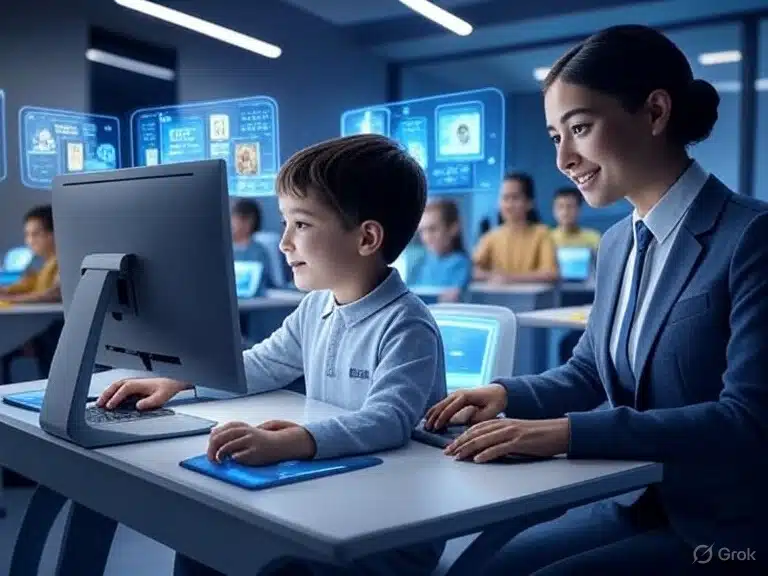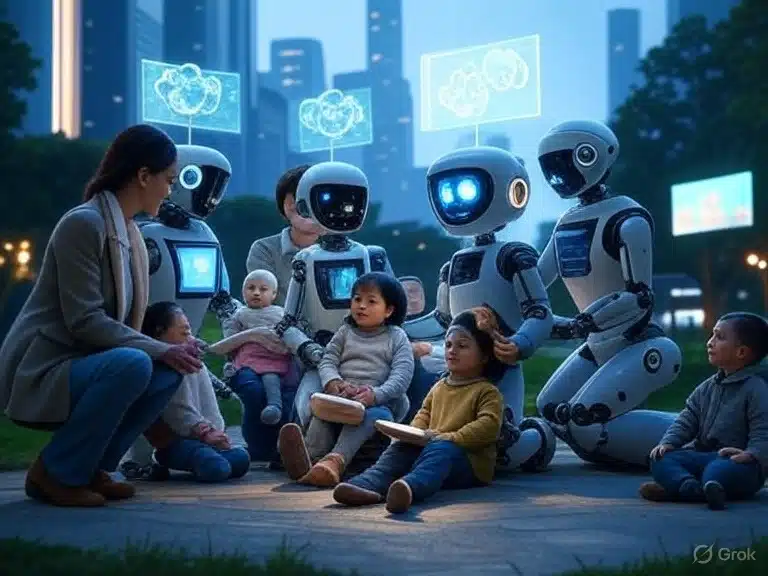Have you ever wished someone could just understand your thoughts without you saying a word? Imagine a future where computers could do exactly that—read minds! Sounds like magic, right? But if computers could peek inside our heads, a big question comes up: How would privacy exist in such a world? Let’s dive into this exciting “what if” scenario and discover the possibilities, challenges, and adventures it could bring!
What Does “Mind-Reading Computers” Mean?
Right now, computers can only understand what we type, say, or show them. But scientists are already experimenting with brain-computer technology. These tools can pick up tiny signals from the brain and turn them into actions. For example, someone might control a video game just by thinking “jump.”
If this technology kept improving, one day computers might read full thoughts, emotions, and even secrets. That would mean our minds—our most private spaces—would no longer be locked away.
The Amazing Possibilities of Mind-Reading Computers
At first, it sounds super cool! Here are some exciting ways life might change:
- No More Talking Needed: You could have silent conversations with friends, just by thinking.
- Superfast Learning: Instead of reading a textbook, knowledge could be uploaded into your mind instantly.
- Helping the Sick: People who can’t speak because of illness could share their thoughts easily.
- Better Safety: Police could know if someone was planning something dangerous before it happened.
- Stronger Connections: Families and friends could understand each other’s feelings perfectly.
It sounds like living in a science-fiction movie!
But Wait… What About Privacy?
Now comes the tricky part. If computers could read your mind, where would your privacy go?
- Your private thoughts might not stay private anymore.
- People could know what you think about them, even if you didn’t want to say it.
- Companies might try to sell things by reading your dreams or wishes.
- Governments might use it to track what people are thinking.
This could be very scary. After all, part of being human is having a secret place in your mind where your thoughts are just yours.
Rules That Would Be Needed
If mind-reading computers ever existed, the world would need strong rules to protect everyone’s privacy. For example:
- Permission First: A computer should only read your mind if you say yes.
- Private Zones: Just like bedrooms and bathrooms are private, there must be “mind privacy zones.”
- Delete Options: You should be able to erase thoughts from computer memory, just like deleting a file.
- No Secrets Stolen: Companies and governments must be stopped from using mind-reading for spying or selling things without asking.
These rules would make sure humans stay in charge of their thoughts.
How Would People Live in This World?
Life with mind-reading computers would be very different. Let’s picture it!
- At school, teachers could instantly know when a student is confused—and help right away.
- In hospitals, doctors could understand pain levels without patients saying a word.
- At home, families might share emotions clearly, leading to fewer arguments.
- On the other hand, kids couldn’t hide when they didn’t do homework—teachers would know!
It could be fun, helpful, and also a little too honest.

Problems That Could Happen
Even with rules, mind-reading computers could cause problems:
- No More Secrets: Surprises like birthday parties might be ruined because people could “see” the plan in your mind.
- Judgment: If everyone knows your thoughts, they might judge you for ideas you didn’t mean seriously.
- Hacking Minds: Just like computers get hacked, what if someone hacked into your brain?
- Losing Freedom: People might feel they can’t think freely if computers are always watching.
That’s why protecting mental privacy would be the most important challenge in this future.
New Jobs and Roles in a Mind-Reading World
When technology changes, new jobs always appear. In a world with mind-reading computers, some exciting jobs might be:
- Mind Privacy Guardians – experts who make sure no one’s thoughts are stolen.
- Thought Designers – people who help create positive “mind messages” to share.
- Brain Software Builders – programmers who safely connect brains to computers.
- Ethics Leaders – people who decide what is fair and unfair in using this technology.
Humans wouldn’t just be users; they’d be the protectors of their inner worlds.
Would People Want This Technology?
Not everyone would say yes. Some might love the idea—especially if it helps communication or health. Others might hate it, because they want to keep their thoughts private.
The world could even be split:
- Open-Thinkers: People who share thoughts with computers.
- Closed-Minds: People who protect their brains and refuse to connect.
This could create new kinds of societies, just like today’s online and offline communities.
Fun and Strange Daily Life Examples
Imagine waking up in this world:
- Your alarm clock turns off because it “hears” you thinking, Five more minutes, please.
- At breakfast, the toaster knows you want crispy bread before you even push a button.
- Walking to school, a bus arrives because it sensed you needed a ride.
- In class, the teacher instantly helps because she knows you’re stuck on a math problem.
But here’s the twist—if you think, I wish I was still in bed, everyone around might know!

Could Humans Control Their Thoughts?
One challenge would be controlling random thoughts. Imagine thinking something silly or embarrassing and a computer picking it up!
To handle this, people might learn mind shields—techniques to block thoughts from being read. Maybe kids would even take classes called Mind Privacy Training 101!
The Balance Between Connection and Privacy
Mind-reading computers could connect people like never before. But privacy is what makes each person unique. Without it, humans might feel less free.
So the real challenge in this world would be finding balance:
- Using mind-reading for help and kindness.
- Protecting secrets, imagination, and personal space.
Final Thought: Thoughts Are Treasures
In the end, thoughts are like hidden treasures—they’re what make each person special. If computers ever learned to read minds, humans would need to make sure those treasures stay safe.
So, even in a high-tech world filled with mind-reading computers, privacy would still matter more than ever.
Because after all, your mind is your castle, your adventure, and your secret universe.

